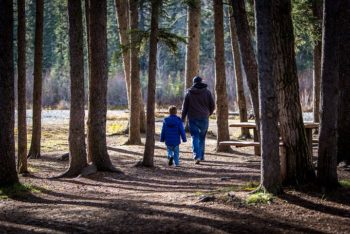 Teaching Our Kids Character Habits That Last a Lifetime (Part 1)
Teaching Our Kids Character Habits That Last a Lifetime (Part 1)
Academic success is important but so is raising children who are kind, courageous, and compassionate. That’s why many schools, including those inspired by EL Education, go beyond traditional academics to teach Habits of Character—the values and behaviors that help students become the best version of themselves.
While EL Education highlights four core character traits—Respect, Responsibility, Perseverance, and Compassion—many schools (like mine) build on this foundation to include other important habits such as Leadership, Empathy, Bravery, Ethical Behavior, Accountability, and Service. Together, these form a framework for developing responsible and resilient children.
The best part, you don’t need a classroom to teach these habits. Parents can nurture them at home, in the car, during family meals, and on the playground. Let’s take a closer look at each habit and how you can help your child grow in character every day. [Read more…]

Alison Whiteley has been a special education teacher for over 15 years, spending most of her time working with elementary students and families. After graduating from the University of Colorado with a Bachelor of Arts in Special Education and Psychology, she continued her education with a Masters in Reading from Walden University. In addition, she has achieved endorsements supporting Early Childhood Special Education and Diverse Learners which she uses to help identify needs across all learners.
Ms. Whiteley is trained in Wilson Reading System and Yoshimoto Orton-Gillingham. She believes all students can learn to read and be successful. She has served as a Special Education Coach and Mentor to fellow specialists and teachers, facilitated the creation of her elementary school’s Response to Intervention/Multi-Tiered Systems of Support (RTI/MTSS) process and helped parents through the Special Education process as IEP Coach for parents. In 2013 she completed the National Boards of Professional Teaching in Exceptional Needs with recertification in 2022. Her areas of expertise involve working with students with learning disabilities, supporting stakeholders moving through the special education process, and helping parents and teachers understand what they can do to support struggling learners in the public school settings.
She is a founding member of the Colorado Reading League and a member of the International Dyslexia Association in Colorado. Alison has two greyhounds and two nephews who keep her busy outside of school. She is the CEO of Toad-ally Exceptional Learners at http://www.toad-allyexceptionallearners.com. Alison is a valuable source of information to support teachers and parents, although she is not a lawyer and does not give legal advice. Her services support families through the IEP process and how they can be an equal member of the team through positive interactions. She focuses on collaboration and using tools to take IEPs to the new level of helping students achieve.
 How to Get Involved in Your Kid’s School
How to Get Involved in Your Kid’s School
 What Does Your School’s Student Performance Data Mean?
What Does Your School’s Student Performance Data Mean? Special Education Parents Provide School Support and Leadership
Special Education Parents Provide School Support and Leadership Camping Adventures for ALL Children
Camping Adventures for ALL Children